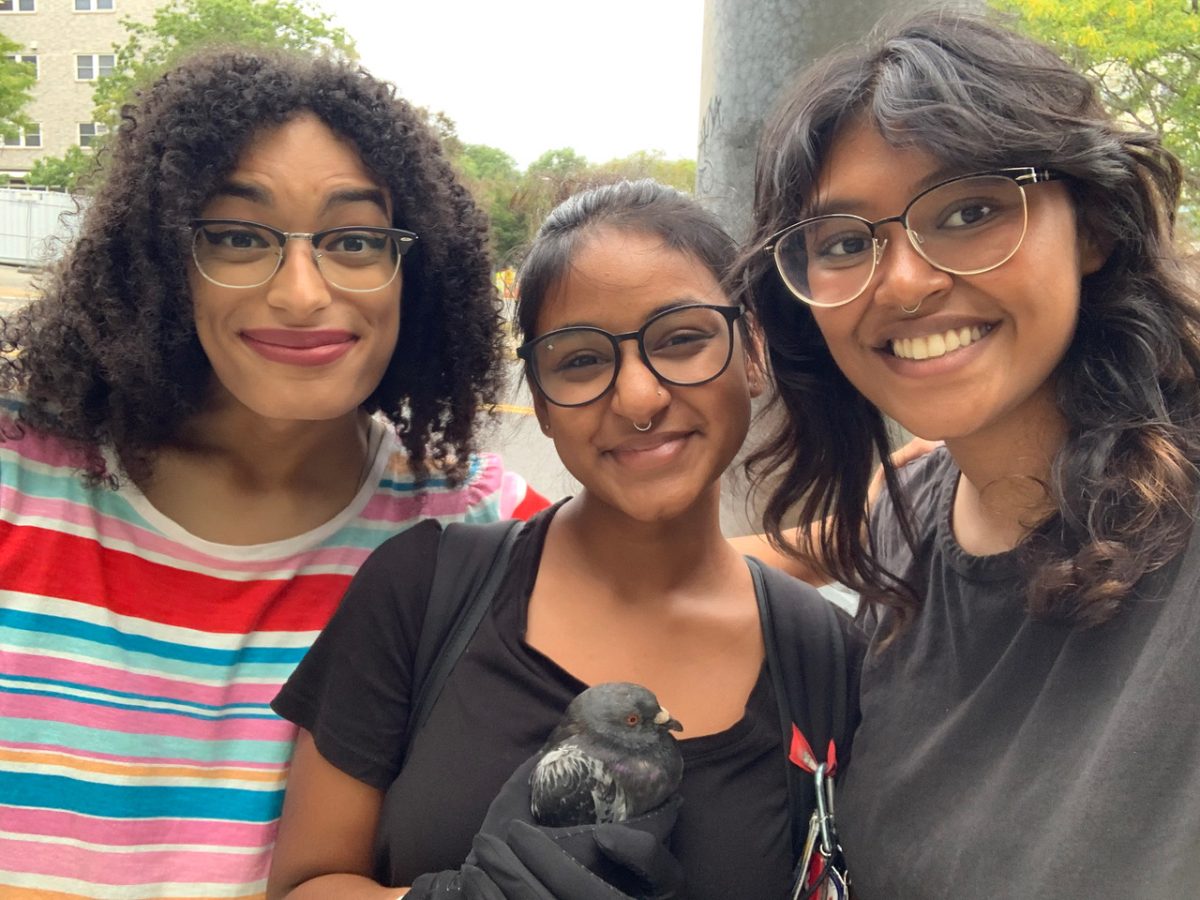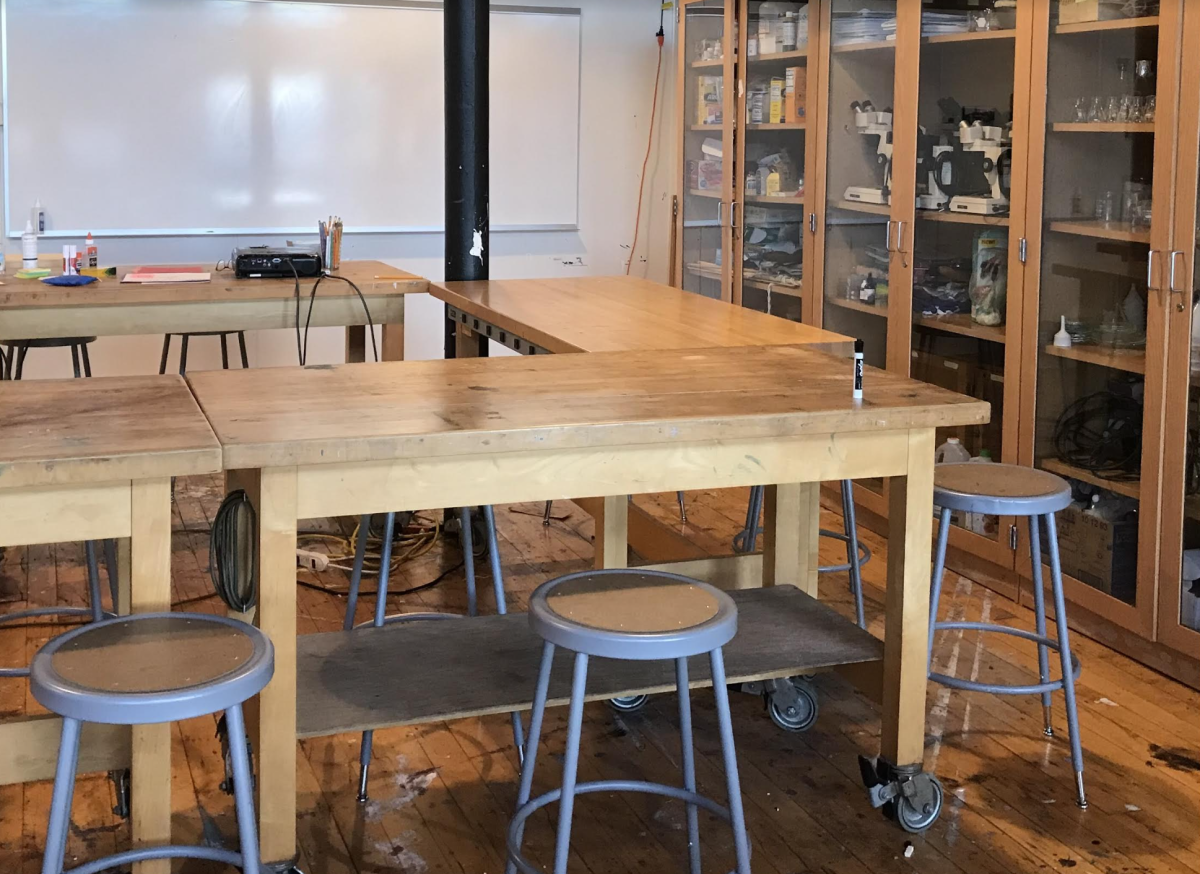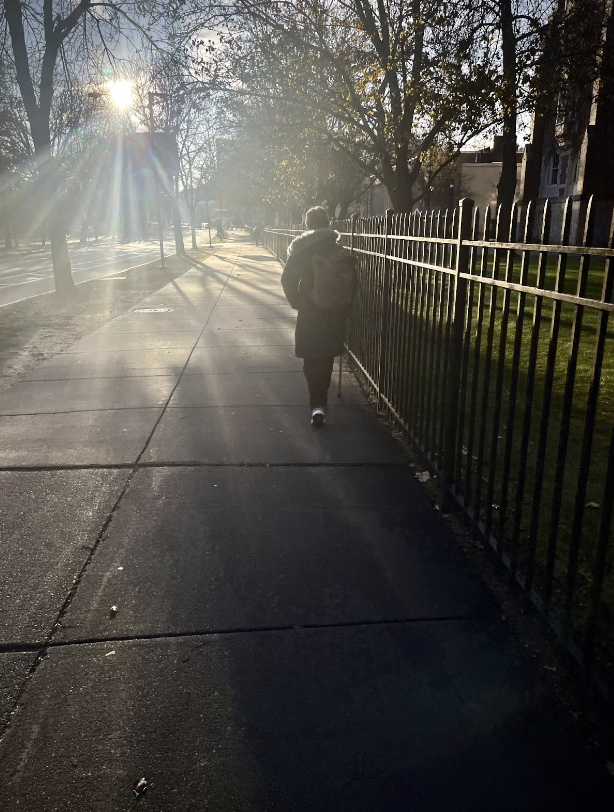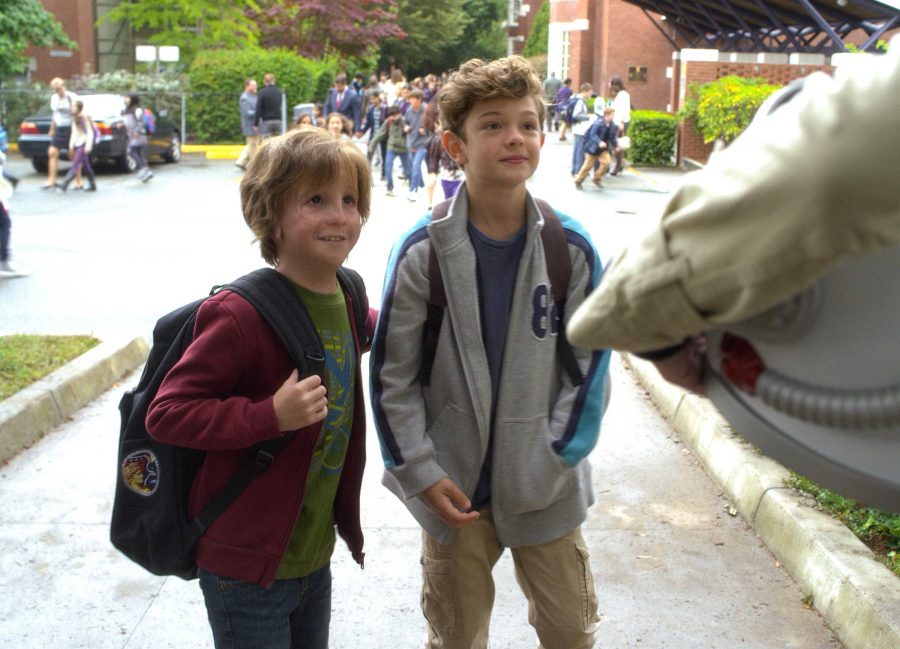By Kaydee Donohoo
Staff Writer
The small mailroom on Simmons residential campus is a place most students only pop in and out of to check for jury summons, send letters, and pick up packages. However, the students working behind the counter know that a lot more goes on than organizing and handing out boxes.

Meghan Lowney, a junior at Simmons majoring in art and French, works for eight hours a week in one of two mailrooms, half the time on academic. She arrives at 2 p.m. for days in the residential mailroom and checks in packages and letters, then sorts through the internal mail for resident life. This takes her to 4 p.m., and when her shift lasts until 6 p.m., Lowney is left to work on homework or browse on her phone. This is one of her favorite aspects of working in the mailroom, however. “You’re able to think. It’s not go go go.”
The slowest times for the mailroom are just after opening around 9 a.m. to 11 a.m. The busiest times are in the afternoon around 2 to 5 p.m. when packages have arrived, been checked in, and students are free to come and pick them up.
What happens when a mailroom student gets their own package? When Lowney sees her own name and mailbox number on a box or larger envelope she becomes “really excited, checks the package in, and then immediately checks it back out.”
Laura Galenkamp, senior neuroscience major, devotes 17 hours a week to the mailroom. She notes that her work has led her to get to know nearly every student’s name. As a transfer student, she needed a head start on this compared to the non-transfer students of her year. She noted having classes with some students where she knew names without any introductions. “I just creepily know all your names,” she jokingly thought. In the residential mailroom, Galenkamp enjoys getting to know the students, and on days working the academic mailroom, she’s become familiar with the names of all the faculty and staff.
Alex Boheinan, an arts administration major, whole-heartedly enjoys the social aspect of the mailroom, and getting to know all the students who came in, or talking with the friends already made. Boheinan talked about how whenever she sees a package for someone she knows well, she’ll write a little note in sharpie for them if she’s not working to hand it to them later. Though, Boheinan says that it can be annoying when people come up to the window and expect her as a worker to automatically know their MSC number.
One thing residents do not see when picking up packages is the mysterious brown envelope pinned onto the corkboard underneath a clock between the window and door. Lowney explains the tale of how, “A package was delivered without anything in it…It was an interesting time.” The package remains with the clear address, and large MSC number in the 800s, serving as a memento to those in the mailroom of the amusing discovery.
Tiffany Armstrong, a social work graduate student working in the mailroom recalls when someone had ordered a trampoline, as well as when a fully-made bike was delivered. She worked in the mailroom during the snowstorm of 2015 and told of how two days’ worth of mail, including the Valentine’s Day rush, all came in at once.
“The mailroom was FULL of soggy wet mail,” Armstrong recalls. “We just spread them out as much as possible so they had time to air dry before shelving them. It took up the entire room that February day. I had the back of the room (which students can’t see) lined with packages.” It took about two hours for the packages to dry with the heat on. Armstrong concludes, “When that happens, you just have to find the least wet ones and start checking in from there!”
Armstrong also notes that her position has helped confirm her decision to do social work. “I’ve had to talk students down each semester. People need help but don’t know where to go,” explains Armstrong, knowing it is a sort of calling to help others in times of crises large and small. Students may come into the mailroom with a mix of panic if a package has not arrived yet, or cannot be sent in time, with various time sensitive material, such as anything monetary or medications.
“There can be a lot of stress surrounding packages…and even sometimes family dynamics play a role.” Armstrong explains how students have come in claiming that an upset parent is yelling that they need to find a package. “A lot of the times, I need to deescalate the student before I can actually get any useful information from them such as tracking information, explaining procedures, etc. It’s hard to give instructions to someone who is deregulated and out of sorts.”

















